SWEDISH
SOUTH ASIAN STUDIES NETWORK
Newsletter 109:
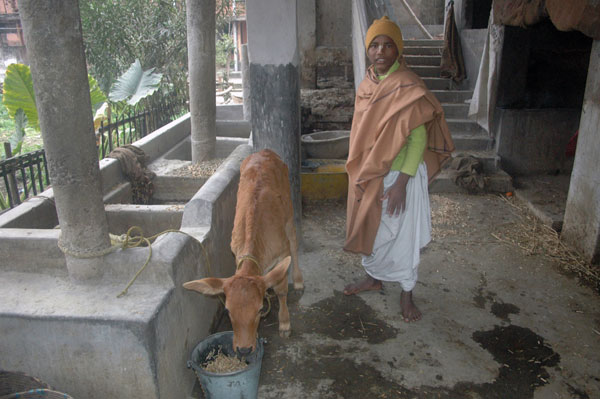 23 April 2010
23 April 2010
| Educational News |
| Lectures and seminars |
| Business and Politics |
| South Asia related Culture |
| New and updated information |
• Lund University provides extra funding for SASNET
 On March 18, 2010, Lund University decided to give the Swedish South Asian Studies Network, SASNET, SEK 830 000 as extra budget funds, in addition to the basic funding equal to the same amount, already provided to SASNET for 2010. The extra funds are taken from the Vice Chancellor’s strategic research funds, and should be specifically used to prepare an investigation regarding Lund University’s common and long-term strategy on collaboration with South Asia. The task also includes exploring possibilities to find external collaboration partners and secure new external funding for SASNET’s continued South Asia related activities. A report should be delivered to the Vice Chancellor before 30 June 2011.
On March 18, 2010, Lund University decided to give the Swedish South Asian Studies Network, SASNET, SEK 830 000 as extra budget funds, in addition to the basic funding equal to the same amount, already provided to SASNET for 2010. The extra funds are taken from the Vice Chancellor’s strategic research funds, and should be specifically used to prepare an investigation regarding Lund University’s common and long-term strategy on collaboration with South Asia. The task also includes exploring possibilities to find external collaboration partners and secure new external funding for SASNET’s continued South Asia related activities. A report should be delivered to the Vice Chancellor before 30 June 2011.
In the decision, the Lund University management also clearly states that it highly values SASNET’s Internet gateway, the newsletters and data bases built up over a period of 10 years. These should be kept intact and continue to be maintained.
More information (as a pdf-file, in Swedish)
• Anna Lindberg on official LU tour to Delhi
SASNET’s director, Dr. Anna Lindberg, will participate in an official Lund University (LU) delegation travelling to India in the last week of April. The group is led by Eva Åkesson, Lund University Pro Vice-Chancellor, who will participate in the Universitas 21 Symposium held at Delhi University. Universitas 21 is an international network of 21 leading research-intensive universities in thirteen countries, among them Lund and Delhi (more information). LU representatives will also visit a number of other universities in Delhi to explore further collaboration with Lund University in different research fields.
• SASNET Work Report 2009 now published
SASNET’s work report for 2009 has now been published. All administrative reports regarding SASNET’s
work and activities from the first planning process
in 1999 till today are available at SASNET’s web site (go for the work reports). The
latest report to be added is the Administrative report no. 10,
for the period 1 January – 31
december 2009, giving extensive information about the activities SASNET carried out during the year.
Go for the 2009 SASNET Work Report.
• SASNET co-organises
Lund Seminar on Arsenic
Poisoning of Drinking Water
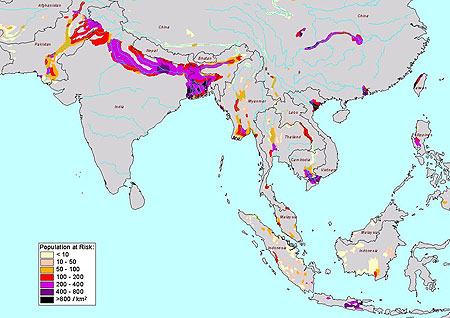 A seminar on Arsenic in Drinking Water will be held at Lund University on Wednesday 5 May 2010. The seminar is organized by SASNET in collaboration with Lund University Centre for Sustainability Studies (LUCSUS); the Division of Water Resources Engineering, Lund University; KTH-International Groundwater Arsenic Research Group at the Dept. of Land and Water Resources Engineering, Royal Institute of Technology (KTH), Stockholm; and The Swallows India-Bangladesh section. Funding has been provided by Swedish Water House (SWH) in Stockholm, and Sydvatten AB in Malmö.
A seminar on Arsenic in Drinking Water will be held at Lund University on Wednesday 5 May 2010. The seminar is organized by SASNET in collaboration with Lund University Centre for Sustainability Studies (LUCSUS); the Division of Water Resources Engineering, Lund University; KTH-International Groundwater Arsenic Research Group at the Dept. of Land and Water Resources Engineering, Royal Institute of Technology (KTH), Stockholm; and The Swallows India-Bangladesh section. Funding has been provided by Swedish Water House (SWH) in Stockholm, and Sydvatten AB in Malmö.
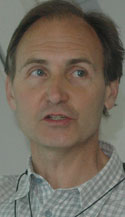 |
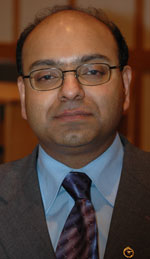 |
| Torleif Dahlin | Prosun Bhattacharya |
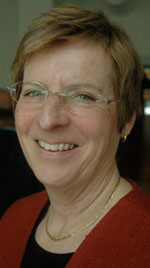 |
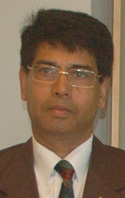 |
| Marie Vahter | Abul Mandal |
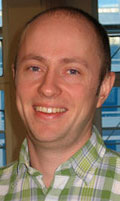 |
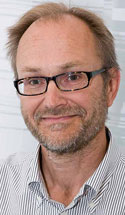 |
| Mattias von Brömssen | Lennart Olsson |
Arsenic in groundwater constitutes a major human health issue in many countries globally. It is particularly acute in the Bengal Delta Plains in Bangladesh and India (see map of most affected areas in South-East Asia) but has also been reported in many parts of the world, including Argentina, Chile, China, the United States. The problem of arsenic poisoning in Bengal has received considerable media attention. Although the source of arsenic is natural, people’s exposure to arsenic in drinking water is the result of extensive groundwater development that began in the 1970s with the support of international development agencies.
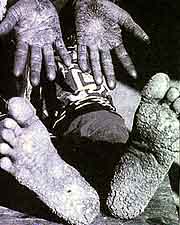 Arsenic poisoning caused by the widespread boring of wells for drinking water has raised concern about ground water exploitation in other parts of the world. The seminar probes the issue of arsenic poisoning in a broad social context and an interdisciplinary perspective, with a focus on how to provide safe drinking water in the future, and what is presently being done by researchers, donors and practitioners working with these issues.
Arsenic poisoning caused by the widespread boring of wells for drinking water has raised concern about ground water exploitation in other parts of the world. The seminar probes the issue of arsenic poisoning in a broad social context and an interdisciplinary perspective, with a focus on how to provide safe drinking water in the future, and what is presently being done by researchers, donors and practitioners working with these issues.
The program includes lectures by Prof. Torleif Dahlin, Lund University, who will talk about ”Groundwater – the hidden resource. A world survey”; Prof. Prosun Bhattacharya, KTH, who will talk about ”Strategies for Sustainable Arsenic Mitigation in Bangladesh”; Prof. Marie Vahter, Division of Metals & Health, Institute of Environmental Medicine (IMM), Karolinska Institutet, Stockholm who will talk about ”Health effects of arsenic with special focus on early-life exposure”, Dr. Abul Mandal, School of Life Sciences, Skövde University, who will talk about ”Studies of genes involved in uptake and/or metabolism of arsenics in plants: A practical approach for protection of human from arsenic contamination”; and Dr. Mattias von Brömssen, Ramböll AB, who will talk about ”Challenges for providing safe drinking water in regions with high As-groundwater in Bangladesh”. Prof. Lennart Olsson from LUCSUS will be the moderator for the day.
The seminar is open to all, and free of charge. Pre-registration is however necessary. Please register your participation to Lars.Eklund@sasnet.lu.se before May 2nd. Venue for the seminar: Världen, Geocentrum 1, 1st floor, Sölvegatan 10, Lund.
See the full programme. Poster for the Arsenic seminar.
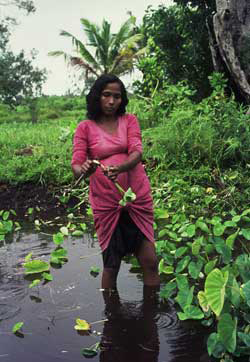 |
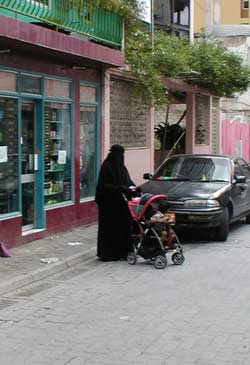 |
• SASNET Seminar on
The Maldives – Paradise Lost?
Nils Finn Munch-Petersen, Senior expert at the Nordic Institute of Asian Studies (NIAS) in Copenhagen, Denmark, holds an open SASNET lecture at Lund University on Tuesday 27 April 2010, 13.15 – 15.00.
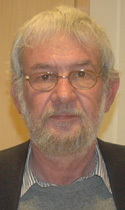 Nils Finn will talk about ”The Maldives – Paradise Lost?”, focusing on the current developments in the Indian Ocean republic, claimed to be threatened by a rise in sea level due to expected global warming. However, more immediate threats are issues such as a break-down of society caused by a growing economic and demographic imbalance precipitated by uncontrolled tourism growth and the influx of lowly-paid foreign workers. This leads to social inequality, a growing number of unemployed youth, narcotics related criminality and a growing Islamic fundamentalism.
Nils Finn will talk about ”The Maldives – Paradise Lost?”, focusing on the current developments in the Indian Ocean republic, claimed to be threatened by a rise in sea level due to expected global warming. However, more immediate threats are issues such as a break-down of society caused by a growing economic and demographic imbalance precipitated by uncontrolled tourism growth and the influx of lowly-paid foreign workers. This leads to social inequality, a growing number of unemployed youth, narcotics related criminality and a growing Islamic fundamentalism.
Nils Finn Munch-Petersen is a social anthropologist who first visited the Maldives in the 1970s, and has since travelled extensively in the Northern and Southern Atolls for research and work for international organizations such as UNDP, UNICEF, UNFPA, and the World Bank. He is considered to be one of the leading, non-Maldivian, world specialists on the Maldives.
Venue for the seminar: Conference room, Centre for East and South-East Asian Studies (ACE), Lund University (Ideon Alfa 1 Building, Scheelevägen 15 D, first floor), Lund.
More information about the seminar.
• High time to register for the 2010 Falsterbo conference
 The second SASNET conference on
South Asian Studies for young Nordic scholars will be held in Höllviken, south of Malmö, on 18–20 August 2010. This will be a follow-up to the successful conference on the same topic that SASNET arranged last year (more information about the 2009 conference). It proved to make a difference from the standard academic conferences and paid attention explicitly to the students. Something that was evaluated very positively from all participants .
The 2010 conference will again be held at Falsterbo conference retreat (Falsterbo kursgård) in Höllviken. The aim is to gather master students, doctoral students, and young post-docs in the Nordic countries (Denmark, Finland, Iceland, Norway and Sweden) who focus on South Asia in their studies or research. The conference will provide an opportunity for young scholars from all disciplines to present their future and ongoing research projects, establish contacts with colleagues in the Nordic countries, and discuss the challenges and opportunities of career planning and conducting research in South Asian Studies.
The second SASNET conference on
South Asian Studies for young Nordic scholars will be held in Höllviken, south of Malmö, on 18–20 August 2010. This will be a follow-up to the successful conference on the same topic that SASNET arranged last year (more information about the 2009 conference). It proved to make a difference from the standard academic conferences and paid attention explicitly to the students. Something that was evaluated very positively from all participants .
The 2010 conference will again be held at Falsterbo conference retreat (Falsterbo kursgård) in Höllviken. The aim is to gather master students, doctoral students, and young post-docs in the Nordic countries (Denmark, Finland, Iceland, Norway and Sweden) who focus on South Asia in their studies or research. The conference will provide an opportunity for young scholars from all disciplines to present their future and ongoing research projects, establish contacts with colleagues in the Nordic countries, and discuss the challenges and opportunities of career planning and conducting research in South Asian Studies.
This year’s topics in focus are Interdisciplinary research, Field Work and Ethics, as well as Academic Career (Publishing, Teaching, Networking).
The keynote speaker will be Prof. Emeritus Graham Chapman from the Dept. of Geography, Lancaster University, UK. Other main speakers will be
Dr. Sirpa Tenhunen, Department of Social and Cultural Anthropology, University of Helsinki, Finland; Mr. Teddy Primack, Director of Academic Documents Associates, USA; Associate Professor Jan Vang, Department of Production, Aalborg University, Denmark; and Dr. Anna Godhe, Department of Marine Ecology, University of Gothenburg.
The deadline to register for the conference is 30 April 2010.
More information on the conference web page.
 • Lars Eklund presents grand tour to India
• Lars Eklund presents grand tour to India
SASNET’s deputy director Lars Eklund has been engaged as a tour guide on minor part-time basis for the Swedish Stockholm based travel agency Indienresor.
According to plans, he will lead a group of Swedish travellers for a grand tour all around India in January–February 2011 (more information about Stora Indienresan). On Thursday 6 May 2010, at 19.00, Lars will give a public presentation about the coming tour at Bibliotek Väster in Lund. See the invitation.
• More information about SASNET and its
activities
See SASNET’s page, http://www.sasnet.lu.se/sasnet.html
• Doctoral dissertation on Sri Lanka Civil War and Peace Negotiations
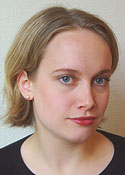 Jannie Lilja, Department of Peace and Conflict Research, Uppsala University, will defend her doctoral dissertation entitled ”Disaggregating Dissent: The Challenges of Intra-Party Consolidation in Civil War and Peace Negotiations”, on Wednesday 12 May 2010, at 10.15. It partly deals with Sri Lanka. Elisabeth Jean Wood, Professor of Political Science at Yale University, USA, will be the faculty opponent.
The thesis discusses the fact that contemporary civil wars are often characterized not only by fighting between rebels and governments, but also by rebel violence against their own community members. In spite of repeated peace negotiations, many of these conflicts seem to go on endlessly. The dissertation approaches the question of rebel capacity by disaggregating the non-state side in civil war and in connection with peace talks. It offers a set of original case studies from three ethno-separatist conflicts: Sri Lanka, Indonesian Aceh, and Senegal.
Jannie Lilja, Department of Peace and Conflict Research, Uppsala University, will defend her doctoral dissertation entitled ”Disaggregating Dissent: The Challenges of Intra-Party Consolidation in Civil War and Peace Negotiations”, on Wednesday 12 May 2010, at 10.15. It partly deals with Sri Lanka. Elisabeth Jean Wood, Professor of Political Science at Yale University, USA, will be the faculty opponent.
The thesis discusses the fact that contemporary civil wars are often characterized not only by fighting between rebels and governments, but also by rebel violence against their own community members. In spite of repeated peace negotiations, many of these conflicts seem to go on endlessly. The dissertation approaches the question of rebel capacity by disaggregating the non-state side in civil war and in connection with peace talks. It offers a set of original case studies from three ethno-separatist conflicts: Sri Lanka, Indonesian Aceh, and Senegal.
More information, incl. link to full-text dissertation.
• NIAS announces three Post-doc Introductory Stipends for 2010
![]() The Nordic Institute of Asian Studies (NIAS) in Copenhagen now announces Nordic Post-doc Introductory Stipends for 2010. The stipends, first introduced in 2009, are meant for young researchers, preferably from the Nordic countries and especially from Nordic NIAS Council (NNC) member institutions, that recently completed their PhDs within the social sciences in an Asia related topic, and who are now looking for an opportunity to develop their post-doc projects at NIAS’ inspiring working environment in Copenhagen. This year various activities at NIAS are being embraced and coordinated within a single overarching agenda under the research programme ”Mapping the Mental Landscapes of Eurasia”. It aims to go beyond studies of individual countries and culture to focus on the relations between agents, agencies, countries and cultures (more information).
The Nordic Institute of Asian Studies (NIAS) in Copenhagen now announces Nordic Post-doc Introductory Stipends for 2010. The stipends, first introduced in 2009, are meant for young researchers, preferably from the Nordic countries and especially from Nordic NIAS Council (NNC) member institutions, that recently completed their PhDs within the social sciences in an Asia related topic, and who are now looking for an opportunity to develop their post-doc projects at NIAS’ inspiring working environment in Copenhagen. This year various activities at NIAS are being embraced and coordinated within a single overarching agenda under the research programme ”Mapping the Mental Landscapes of Eurasia”. It aims to go beyond studies of individual countries and culture to focus on the relations between agents, agencies, countries and cultures (more information).
The post-doc stipend offer includes a two-month stay at NIAS on a salary according to present Danish university standards. Certain conditions apply, including that recipients have to commit themselves, while at NIAS, to write an application for long term research funding (minimum 2 years). They are also expected to carry out their project research at NIAS. If they wish to continue an affiliation with their home institute, an arrangement will be negotiated so the candidate can divide his/her time between the relevant institutions.
Three stipend periods are vacant in 2010:
• First stipend is to start between 15-31 May and continue for 2 months. Deadline for applications is 30 April 2010.
• Next stipend is for 1 September–31 October. Deadline for applications is 2 August 2010.
• Final stipend is for 1 October–30 November. Deadline for applications is 1 September 2010.
Applications will be evaluated by the NIAS research staff in collaboration with representatives from the Nordic NIAS Council. More information.
• Sudhanshu Rai blogs on fourth wave of interactive globalization
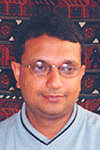 The Nordic Asia Research Community AsiaPortal In Focus Blog named Barha (hosted by the Nordic Institute of Asian Studie, NIAS in Copenhagen) has published a text by Dr Sudhanshu Rai, Copenhagen Business School. In the April 2010 blog piece, entitled ”Thinking about co-creation”, he writes about what he calls the fourth wave of interactive globalization, the co-creation phase, and poses a number of questions which puzzles him and which he would like to invite others to join him in his project to find responses to. Dr Sudhanshu Rai at present holds a Post Doc position in the Department of Informatics at CBS and is also Team Leader, Euro-India ICT R&D Project.
The Nordic Asia Research Community AsiaPortal In Focus Blog named Barha (hosted by the Nordic Institute of Asian Studie, NIAS in Copenhagen) has published a text by Dr Sudhanshu Rai, Copenhagen Business School. In the April 2010 blog piece, entitled ”Thinking about co-creation”, he writes about what he calls the fourth wave of interactive globalization, the co-creation phase, and poses a number of questions which puzzles him and which he would like to invite others to join him in his project to find responses to. Dr Sudhanshu Rai at present holds a Post Doc position in the Department of Informatics at CBS and is also Team Leader, Euro-India ICT R&D Project.
Go for the In Focus blog.
• Udaya Narayana Singh writes on translation
theory
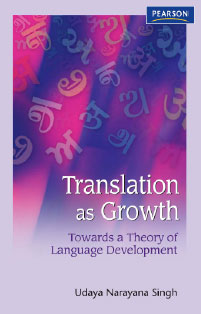 Prof. Udaya Narayana Singh,
Director for the Rabindra Bhavana & Tagore Research Chair, Visva-Bharati University in Santiniketan, India, has published a new book entitled ”Translation as Growth: Towards a Theory of
Language Development” (Longman Pearson, 2010). In the book, Singh argues that translation, like
authoring, is a creative act that enriches both the original and
translated language. Singh shows that the major modern Indian languages have developed
not only through ‘vertical’ translations from the languages of power and knowledge –
English and Sanskrit – but also by engaging in ‘horizontal’ translations of one another,
ultimately contributing to the creation of an inherently pluralistic body of literature in
India. More information about the book.
Prof. Udaya Narayana Singh,
Director for the Rabindra Bhavana & Tagore Research Chair, Visva-Bharati University in Santiniketan, India, has published a new book entitled ”Translation as Growth: Towards a Theory of
Language Development” (Longman Pearson, 2010). In the book, Singh argues that translation, like
authoring, is a creative act that enriches both the original and
translated language. Singh shows that the major modern Indian languages have developed
not only through ‘vertical’ translations from the languages of power and knowledge –
English and Sanskrit – but also by engaging in ‘horizontal’ translations of one another,
ultimately contributing to the creation of an inherently pluralistic body of literature in
India. More information about the book.
Till June 2009, Prof. Singh was the Director for the
Central Institute of Indian Languages (CIIL) in Mysore, involved in several projects together with Swedish researchers. He is a renowned linguist as well
as a reputed poet, playwright and essayist in Maithili and Bengali. He set up the Centre
for Applied Linguistics and Translation Studies (CALTS), the Centre for Distance
Education and the Study India Program (SIP) at the University of Hyderabad, and has
taught at the Universities of Delhi, Baroda and Surat. More information.
• CROP aims to be the hub for global poverty research
 The Comparative Research Programme on Poverty (CROP), hosted by the University of Bergen, Norway has undergone a process of restructuring and reorganization. The central aim of CROP is to mobilize critical research for preventing and eradicating poverty. Since 2009, CROP has adapted a new strategic plan, involving cooperation with researchers all over the world, and clear and relevant research outputs that are accessible to policy makers, activists, the media and the general public. The new website plays a crucial role in this ambition, since it aims at being a ‘one-stop shop’ on poverty research – a place where researchers worldwide can find the latest workshops, publications and news on critical approaches to poverty, and advertise events and publications. Researchers and others working on poverty-related issues will also be able to register their details in CROP’s online database, to make themselves visible to a broader community. Go to CROP’s website.
The Comparative Research Programme on Poverty (CROP), hosted by the University of Bergen, Norway has undergone a process of restructuring and reorganization. The central aim of CROP is to mobilize critical research for preventing and eradicating poverty. Since 2009, CROP has adapted a new strategic plan, involving cooperation with researchers all over the world, and clear and relevant research outputs that are accessible to policy makers, activists, the media and the general public. The new website plays a crucial role in this ambition, since it aims at being a ‘one-stop shop’ on poverty research – a place where researchers worldwide can find the latest workshops, publications and news on critical approaches to poverty, and advertise events and publications. Researchers and others working on poverty-related issues will also be able to register their details in CROP’s online database, to make themselves visible to a broader community. Go to CROP’s website.
• More information about South Asia related
research at Swedish and Nordic universities
See SASNET’s page, http://www.sasnet.lu.se/research.html
• India invites foreign top institutions to set up innovation universities
 Decades after India sought foreign assistance to establish its first premier technical institutes – the Indian Institutes of Technology or IITs – it is again seeking guidance from the world's top institutions to set up 14 innovation universities. The government wants mentors from leading universities in the US and UK. They include the Massachusetts Institute of Technology, Harvard, Yale and George Washington universities, and Imperial College, London.
Decades after India sought foreign assistance to establish its first premier technical institutes – the Indian Institutes of Technology or IITs – it is again seeking guidance from the world's top institutions to set up 14 innovation universities. The government wants mentors from leading universities in the US and UK. They include the Massachusetts Institute of Technology, Harvard, Yale and George Washington universities, and Imperial College, London.
The 14 innovation universities are to be centres of excellence along the lines of Harvard and Oxford. The plan to create the universities was first announced by President Pratibha Patil during her address to Parliament soon after the Manmohan Singh-led government took over 2008.
The government wants the universities to be autonomous entities with no 'regulation from outside'. At present, universities are governed by the University Grants Commission and have limited powers to fix fees or sanction teaching posts. But a 'concept note', prepared by the Education Ministry and circulated to other government departments, says the universities will be allowed to frame their own rules for academics and the qualifications needed for teaching positions. They will have freedom to decide their fees, curricula and rules for the appointment of faculty. The innovation universities are meant to fill a gap in research and also tackle new areas or problems significant to India. These include urbanisation, green energy, environmental sustainability and public health. More information.
• More information about South Asia related
education at Swedish and Nordic universities
See SASNET’s page, http://www.sasnet.lu.se/education.html
• Indo-European conference on Quality Assurance in Higher Education
An Indo-European conference on Quality Assurance in Higher Education (IECONQA) will be held at the University of Delhi 6–7 May 2010. The conference is being jointly organised by the University of Delhi, the India-EU Study Centres Program, and the Erasmus Mundus External Cooperation Window (EMECW) 13 – India project. The conference will gather European and Indian experts on the established European practices, and the Indian initiatives on quality assurance in Higher Education. It comes at a particularly apt time in the history of India’s relationship with European Union, as the Indian Ministry of Human Resource and Development (MHRD) is actively considering how to regulate the delivery of Higher education in India so as to position itself for leadership in the knowledge-based economies of the coming era. The “Joint Declaration on Education” signed by the European Commission and Government of India (MHRD) expresses a conjoint will to increase academic mobility and develop links between the Indian and the European higher education institutions. More information.
• Sida Partnership Forum conference on Green Solutions and Clean Tech
![]() The Swedish International Develoment Cooperation Agency, Sida, arranges a conference on ”Green Solutions, Clean Tech & Development” in Härnösand 18–22 May 2010. It is organised within the framework of the Sida Partnership Forum, and carried out in collaboration with Swentec, Clean Tech Region, Arena Miljölänet Västernorrland and Technichus. Severals seminars focusing on green solutions and clean tech business will be held, including a presentation by
R. Narayan Moorthy, Secretary General, Indian Paper Manufacturers Association (IPMA), who will talk about ”Perspectives on Green Solutions and Clean Tech”. More information.
The Swedish International Develoment Cooperation Agency, Sida, arranges a conference on ”Green Solutions, Clean Tech & Development” in Härnösand 18–22 May 2010. It is organised within the framework of the Sida Partnership Forum, and carried out in collaboration with Swentec, Clean Tech Region, Arena Miljölänet Västernorrland and Technichus. Severals seminars focusing on green solutions and clean tech business will be held, including a presentation by
R. Narayan Moorthy, Secretary General, Indian Paper Manufacturers Association (IPMA), who will talk about ”Perspectives on Green Solutions and Clean Tech”. More information.
• Bornholm conference by Indian Ocean Research Network
The Research Network on ‘The Indian Ocean as Visionary Area:
PostMulticulturalist
Approaches to the Study of Culture and Globalisation’ invites to its third conference on ”Religion, Law and Regimes of Control around the Indian Ocean”, to be held in Sandvig, Bornholm, Denmark, 1–4 September 2010. The aim of the Indian Ocean network project is to develop collaboration between researchers in Denmark, India and South Africa – as well as Nordic and European colleagues – engaged in studies of transnationalism and cultural exchanges around the Indian Ocean. The network wants to critically examine and revise paradigms of understanding within the field and work towards new ’post-multiculturalist’ approaches. It has two focus areas that are closely related and both represent central fields of interaction – ’Cultural clashes and mediations around fundamentalisms and religious movements’ and ’The transnational history of nationalisms and the emergence of new universalisms’. More information about the network.
Earlier conferences of the Indian Ocean network were held in Johannesburg in January 2009 (’Print
Cultures, Nationalisms and Publics of the Indian Ocean’) and in Goa in November 2009 (‘Connecting
Histories across the Indian Ocean: Religion, Politics and Popular Culture’). In the third network
conference on ‘Religion, Law and Regimes of Control’, the organisers want to explore in greater depth aspects of
power, control, and security in the Indian Ocean world in both a historical and contemporary
perspective. The conference is convened by Bodil Folke Frederiksen and Preben Kaarsholm from the Dept. of Society
and Globalisation at
Roskilde University. Abstracts should be submitted before 3 May
2010. Venue for the conference: Hotel Romantik, Bornholm, Denmark.
More information about the conference.
• Second Dissertation-to-Book Workshop at Madison
 For the second year, an American South Asia Centers' Dissertation-to-Book Workshop will be held in Madison, Wisconsin, USA, 13–15 October 2010. It is jointly sponsored by the American Overseas Research Centers in India (AIIS), Pakistan (AIPS), Bangladesh (AIBS) and Sri Lanka (AISLS). The aim is to assist recent PhD scholars devoted to the study of South Asia with the revision of their doctoral dissertations as books. The first “dissertation into book” workshop was held in 2009, and was very successful (see report). The workshop coincides with the Annual Conference on South Asia in Madison (more information), and will feature dynamic discussion and feedback opportunities as well as mentorship from senior faculty and recent successful authors. Applications to participate are
due by June 15, 2010.
For the second year, an American South Asia Centers' Dissertation-to-Book Workshop will be held in Madison, Wisconsin, USA, 13–15 October 2010. It is jointly sponsored by the American Overseas Research Centers in India (AIIS), Pakistan (AIPS), Bangladesh (AIBS) and Sri Lanka (AISLS). The aim is to assist recent PhD scholars devoted to the study of South Asia with the revision of their doctoral dissertations as books. The first “dissertation into book” workshop was held in 2009, and was very successful (see report). The workshop coincides with the Annual Conference on South Asia in Madison (more information), and will feature dynamic discussion and feedback opportunities as well as mentorship from senior faculty and recent successful authors. Applications to participate are
due by June 15, 2010.
More information on the 2010 workshop.
• First Students’ Conference on Bengal Related Studies in Halle
The
First Students’ Conference on Bengal Related Studies will be held in Halle (Saale), Germany, on 30–31
October 2010. It is hosted by the South Asia Seminar, Institute of Oriental Studies, Martin Luther University Halle-Wittenberg along with the association Bengal Link e.V. The aim of the conference is to provide an inter-disciplinary venue for young scholars who focus on the Bengali regions in their studies.
Halle-Wittenberg is one of the two German universities where research on the Bengal regions, Bengali language and culture has been an integral part for a long time. After the emergence of numerous studies on the Bengal regions from other disciplines (e.g. Social Anthropology, Sociology, Development Studies, Urban Planning) the conference organisers realised the necessity of giving young scholars an option to discuss their various topics and research approaches among each other and of building up an interdisciplinary network for Bengal Related Studies. Abstracts should be submitted before 15 July 2010.
More information.
• Devnet conference on Challenges to Sustainable Development
 The Swedish research network on sustainable development, DevNet (based at Uppsala Centre for Sustainable Development, CSD) invites to conference entitled ”Nature, Poverty and Power
Assessing Challenges to Sustainable Development” to be held in Uppsala 25–26 November 2010. The aim behind this interdisciplinary
conference will be to explore the interrelationship between natural resource use, poverty and
power.
Amita Baviskar from the Institute of Economic Growth in Delhi, India will hold one of the key-note lectures. Eight parallel sessions under the following
headings are open for presentations by scholars, development practitioners and activists:
– Sustainable development as a problem of global distribution; – Community-based and community-driven natural resource management – a tool for poverty
reduction and sustainable development?; – Movement and the neoliberal state – probing the politics and contestations of
poverty/displacement; – Health, resilience and poverty; – Global patterns of production and consumption, and their effects on people in poverty; – Cities, marginalisation, rights and citizenship; – The politics of climate change, gender and development; and – Bare necessity: subsistence and displacement at the resource frontier.
The Swedish research network on sustainable development, DevNet (based at Uppsala Centre for Sustainable Development, CSD) invites to conference entitled ”Nature, Poverty and Power
Assessing Challenges to Sustainable Development” to be held in Uppsala 25–26 November 2010. The aim behind this interdisciplinary
conference will be to explore the interrelationship between natural resource use, poverty and
power.
Amita Baviskar from the Institute of Economic Growth in Delhi, India will hold one of the key-note lectures. Eight parallel sessions under the following
headings are open for presentations by scholars, development practitioners and activists:
– Sustainable development as a problem of global distribution; – Community-based and community-driven natural resource management – a tool for poverty
reduction and sustainable development?; – Movement and the neoliberal state – probing the politics and contestations of
poverty/displacement; – Health, resilience and poverty; – Global patterns of production and consumption, and their effects on people in poverty; – Cities, marginalisation, rights and citizenship; – The politics of climate change, gender and development; and – Bare necessity: subsistence and displacement at the resource frontier.
Abstracts should be submitted before 3 June 2010. More information.
• Other conferences connected to South Asian
studies arranged all over the World
See SASNET’s page, http://www.sasnet.lu.se/conferences.html#conf
Important lectures and seminars in Scandinavia
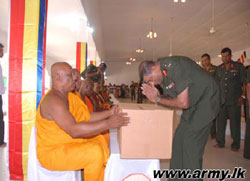 • Oslo lecture on Buddhism and Militarism in
Contemporary Sri Lanka
• Oslo lecture on Buddhism and Militarism in
Contemporary Sri Lanka
Sarah Iselin Frydenlund, Dept. of Culture Studies and Oriental Languages (IKOS), University of Oslo, will hold a public lecture on ”Buddhism and Militarism in
Contemporary Sri Lanka” on Tuesday 27 April 2010, 16.15. The seminar is organised by the Oslo Buddhist Studies Forum, and focuses on the fact that in spite that
Buddhism is often perceived as a religion that emphasizes worldly renunciation and non-violence, Buddhist monks in Sri Lanka
favoured a military solution to the conflict with the LTTE. Is it possible, based on the Sri Lankan
case, to critically engage in a discussion about Buddhism and violence? Venue for the seminar: P.A. Munch's Building, 1st floor, seminar room 4, Blindern, Oslo. More information.
• Sudipta Bhattacharyya holds first ICCR-CBS Lecture at Copenhagen Business School
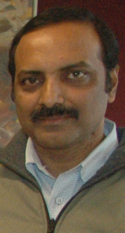 Dr. Sudipta Bhattacharyya, ICCR Visiting Professor at the Asia Research Centre (ARC), Copenhagen Business School (CBS) & Associate Professor, Dept. of Economics and Politics, Visva-Bharati, West Bengal, India will hold the first ICCR-CBS Lecture, as it is called, on Monday 3 May 2010, 16.00–18.15. Dr. Bhattacharyya will talk about ”India's Winning Card to Economic Progress: Agriculture or Industry?”. It will be his inaugural lecture as the first visiting professor at CBS funded by the Indian Council of Cultural Relations (ICCR). The Government of India, through ICCR, and the Copenhagen Business School has signed an agreement according to which Asia Research Centre at CBS will receive a visiting professor from India on a rotating yearly basis.
Dr. Sudipta Bhattacharyya, ICCR Visiting Professor at the Asia Research Centre (ARC), Copenhagen Business School (CBS) & Associate Professor, Dept. of Economics and Politics, Visva-Bharati, West Bengal, India will hold the first ICCR-CBS Lecture, as it is called, on Monday 3 May 2010, 16.00–18.15. Dr. Bhattacharyya will talk about ”India's Winning Card to Economic Progress: Agriculture or Industry?”. It will be his inaugural lecture as the first visiting professor at CBS funded by the Indian Council of Cultural Relations (ICCR). The Government of India, through ICCR, and the Copenhagen Business School has signed an agreement according to which Asia Research Centre at CBS will receive a visiting professor from India on a rotating yearly basis.
In his lecture, Dr. Bhattacharyya explores how agriculture and industry may be balanced in an emerging economy like India. India has witnessed a broad systematic relationship between performance of agriculture and industrial expansion. The relative neglect of agriculture during the second and third Five Year Plans resulted in a squeeze in the home market for industrial goods and consequent industrial stagnation since the mid sixties. Industry recovered in the eighties following the progress of the green revolution and the anti-poverty policies. During the nineties the initial industrial boom could not be sustained because of the dismal performance of agriculture following state withdrawal policies. In current years, a recovery of industrial growth is witnessed as a result of state interventionist policies related to agriculture and rural development taken up since mid 2000s. The lecture will discuss why these policies affect India's economic progress in a positive way and give suggestions to how other emerging economies might learn from India's experience.
The seminar will be introduced by the Ambassador of India to Denmark, Mr. Yogesh K. Gupta, who will give a presentation on ”Academic Collaboration between India and Denmark”. Venue: CBS/Kilen, Ks71 Euler Hermes Aud (ground floor), Frederiksberg (next to metro station Fasanvej). Please register before 26 April.
More information.
• Devnet seminar on hazardous ship dismantling
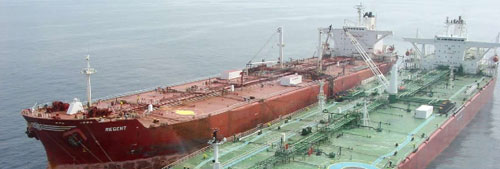 The Swedish research network on sustainable development, DevNet (based at Uppsala Centre for Sustainable Development, CSD) organises a seminar on ”Ship Dismantling – Current Problems and Ways Forward” in Uppsala on Tuesday 4 May 2010, 9.15–12.00. It focuses on the fact that despite that the majority of the international ship fleet is registered within the EU and the US, less than 1% of the ships are currently being dismantled in these countries once they are ready for scrapping.
The Swedish research network on sustainable development, DevNet (based at Uppsala Centre for Sustainable Development, CSD) organises a seminar on ”Ship Dismantling – Current Problems and Ways Forward” in Uppsala on Tuesday 4 May 2010, 9.15–12.00. It focuses on the fact that despite that the majority of the international ship fleet is registered within the EU and the US, less than 1% of the ships are currently being dismantled in these countries once they are ready for scrapping.
Instead, they are ”beached” in Bangladesh, India and Pakistan, where poorly paid unskilled workers dismantle the ships under circumstances that are extremely hazardous for both workers and the environment. Still, the ship dismantling industry represents work opportunities in these countries and almost everything from the ships are recycled and reused. Is there scope to improve the existing practices so that ship dismantling could continue in the current countries in a more environmentally and socially sustainable way?
The workshop is introduced with a lecture by Prof. Shyam R. Asolekar, Centre for Environment Science and Engineering, Indian Institute of Technology (IIT) Bombay, followed by a challenging and constructive discussion on possible solutions. A broad range of actors are invited to the workshop, including academics, NGOs, political actors and the business community.
Venue: Room Norrland I, Geocentrum, Villavägen 16, Uppsala. More information.
• Oslo seminars on South Indian Folk Culture and Sanskrit Drama
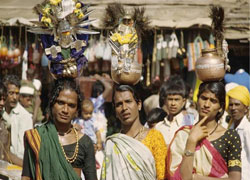 Professor Heidrun Brückner, Head of the Chair of Indology at Würzburg University, has been invited by the The Department of Culture Studies and Oriental Languages (IKOS), University of Oslo, to lecture on three topics related to cultures of South India during the period 5–7 May 2010. Venuefor all lectures: Eilert Sundts hus, B-blokka, room 551, University of Oslo in Blindern.
Professor Heidrun Brückner, Head of the Chair of Indology at Würzburg University, has been invited by the The Department of Culture Studies and Oriental Languages (IKOS), University of Oslo, to lecture on three topics related to cultures of South India during the period 5–7 May 2010. Venuefor all lectures: Eilert Sundts hus, B-blokka, room 551, University of Oslo in Blindern.
The first lecture will be held on Wednesday 5 May, 10.15 – 12.00, and is entitled ”Folk Culture and Modernity: The Case of Goddess Renuka-Ellamma and her Special Devotees”. It deals with the South Indian goddess Renuka-Ellamma and her temple at Saundatti in North Karnataka. The lecture discusses the impact of “modernization” on “folk” or popular religious culture, taking the so-called “Devadasis” and their abolition as an example.
The second lecture will be held on
Thursday 6 May, 10.15 – 12.00, and is entitled ”Between Ghosts and Gods: Tulu Oral Traditions and Ritual Performances from the West Coast of South India”. The presentation will introduce a set of interrelated oral traditions from the Tulu-speaking west-coast region of South India and the ritual performances connected with them.
The final lecture will be held on Friday 7 May, 10.15–12.00, and is entitled ”Sanskrit Drama and Theatre in South India: The Kutiyattam of Kerala”. The lecture introduces the manuscript and performance traditions of Sanskrit drama and theatre in Kerala, South India. A theatre tradition that in 2001 was awarded the title “Masterpiece of the Oral and Intangible Heritage of Humanity” by UNESCO.
More information about the lectures series.
• Uppsala seminar on modern Dalit Hindi writing
Dr Heinz Werner Wessler from the University of Bonn, Germany, will hold a seminar on ”When the subaltern speaks: Identity
politics in modern Dalit Hindi writing” in Uppsala on Tuesday 11 May 2010, 10.15–12.00. Dr. Wessler is currently a guest teacher in Hindi at the Dept. of Linguistics and Philology, Uppsala University. The seminar is organised as a SALT (Uppsala University’s Forum for Advanced Studies in Arts, Languages and Theology) Lecture by the university’s cross-disciplinary South Asia Seminar. Venue: Uppsala University, Room 9-3068, Campus Engelska Parken. More information.
• Uppsala seminar on Colonial Rule in Northern East Bengal
Dr. Gunnel Cederlöf, Dept. of History, Uppsala University, will hold a lecture entitled ”Boundaries, Polities and the Making of a Citizen: The Establishment of Colonial Rule in Northern East Bengal” on Monday 17 May 2010, 13.15–15.00. The seminar is held within the framework of a seminar series at the Dept. of History. Venue: Room 1-1060,
Engelska parken, Thunbergsvägen 3A, Uppsala.
 • Stockholm seminar with Sunil Khilnani and Sten Widmalm
• Stockholm seminar with Sunil Khilnani and Sten Widmalm
Dr. Sunil Khilnani, Director for the Johns Hopkins University’s School of Advanced International Studies, participates in a Stockholm seminar entitled ”India – the new Superpower” on Monday 17 May 2010, 18.00. Dr. Khilnani’s presentation will be commented upon by Prof. Sten Widmalm, Dept. of Government, Uppsala University. The seminar is organised by Global Utmaning (Global Change), a Stockholm based think tank working on issues that are important to Swedish society and that are related to globalisation, in collaboration with The Olof Palme International Center. Mr. Carl Tham wil be the moderator. Venue: ABF-huset, Sveavägen 41.
• Lund seminar on innovation and internationalization strategies of Chinese and Indian firms
The Centre for Innovation, Research and Competence in the
Learning Economy (CIRCLE) at Lund University organises a seminar presenting a research paper on ”Different competences, different modes in
the globalization of innovation?
A comparative study of the Pune and
Beijing regions” on Tuesday 18 May 2010, at 14.15–16.00 (please note changed date). The paper is written by the CIRCLE researchers
Monica Plechero and
Cristina Chaminade, and is based on data on innovation and internationalization strategies of Chinese and Indian firms, collected in Pune, India and Beijing, China during 2008-2009. The study specifically explores the role of the region as well as firm-characteristics in the form that firms internationalize. Three forms of globalization of innovation are considered: the global sourcing of technology, the international research collaboration and the global exploitation of technology. The comparative data on the two regions shows that the Pune region is more specialized in all the three forms, and particularly regarding the exploitation of innovation.
• Teachers invited to Stockholm seminar on rich world’s responsibility
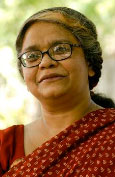 The Global School Sweden organises a seminar on ”Den rika världens ansvar – ett dygn för globalt lärande” (The responsbility of the rich world – twenty-four hours for global learning) in Stockholm 20–21 May 2010. The seminar is organised in collaboration with the Swedish International Development Cooperation Agency, Sida, and is a follow-up seminar to another seminar held last year. It will focus on the Millennium Goal No. 8, on ”Developing a global partnership for development”. The speakers at the Stockholm seminar include Prof. Gitiara Nasreen (photo), Head of the Department of Mass Communication and Journalism, Dhaka University, Bangladesh. She will talk about ”Images of Gender on Media – The Unchanging Constructions”. The Global School Sweden (Globala Skolan) is a programme run by the International Programme Office for Education and Training and supported by Sida. University teachers from Swedish universities and university colleges are invited to participate in the seminar that is organised free of charge. Registration must be made before May 7th.
The Global School Sweden organises a seminar on ”Den rika världens ansvar – ett dygn för globalt lärande” (The responsbility of the rich world – twenty-four hours for global learning) in Stockholm 20–21 May 2010. The seminar is organised in collaboration with the Swedish International Development Cooperation Agency, Sida, and is a follow-up seminar to another seminar held last year. It will focus on the Millennium Goal No. 8, on ”Developing a global partnership for development”. The speakers at the Stockholm seminar include Prof. Gitiara Nasreen (photo), Head of the Department of Mass Communication and Journalism, Dhaka University, Bangladesh. She will talk about ”Images of Gender on Media – The Unchanging Constructions”. The Global School Sweden (Globala Skolan) is a programme run by the International Programme Office for Education and Training and supported by Sida. University teachers from Swedish universities and university colleges are invited to participate in the seminar that is organised free of charge. Registration must be made before May 7th.
More information.
• Information about South Asia related lectures and seminars
See SASNET's page, http://www.sasnet.lu.se/conferences.html
Business and Politics
• Sida presents business for develoment programme at Globe Forum Conference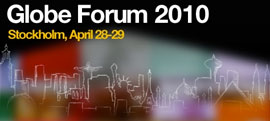 Globe Forum is an annual international conference held in Stockholm for business leaders, entrepreneurs, academics, political leaders and state actors working in the most dynamic growing markets. The theme for the Globe Forum 2010 will be ”Solar Power, Nanotechnology and Green ICT”. It will take place 28–29 April 2010, at Frihamnshallen, Frihamnsgatan 66 in Stockholm. The primary focus of the conference was to share views and information from the fastest growing markets: China, India, Central and Eastern Europe and the Gulf region, and inspire new business opportunities in the light of global environmental and social challenges. The conference addressed the technology and consumer perspectives and the broader energy areas, including energy availability and usage, transport and environmental issues.
Globe Forum is an annual international conference held in Stockholm for business leaders, entrepreneurs, academics, political leaders and state actors working in the most dynamic growing markets. The theme for the Globe Forum 2010 will be ”Solar Power, Nanotechnology and Green ICT”. It will take place 28–29 April 2010, at Frihamnshallen, Frihamnsgatan 66 in Stockholm. The primary focus of the conference was to share views and information from the fastest growing markets: China, India, Central and Eastern Europe and the Gulf region, and inspire new business opportunities in the light of global environmental and social challenges. The conference addressed the technology and consumer perspectives and the broader energy areas, including energy availability and usage, transport and environmental issues. 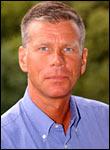 The
Swedish International Development Cooperation Agency (Sida) is one of Globe Forum's partners. During Globe Forum 2010, its Director-General Anders Nordström (photo to the left) will present Sida’s new public-private collaboration programme entitled ”Business for Development”, B4D. This programme includes a new form of development funding focusing on ”Innovations Against Poverty”.
The
Swedish International Development Cooperation Agency (Sida) is one of Globe Forum's partners. During Globe Forum 2010, its Director-General Anders Nordström (photo to the left) will present Sida’s new public-private collaboration programme entitled ”Business for Development”, B4D. This programme includes a new form of development funding focusing on ”Innovations Against Poverty”.Invited South Asian speakers for the 2008 Globe Forum include Dipal Chandra Barua, Founder & Chairman, Bright Green Energy Foundation; Rajendra Pachauri, Chairman, IPCC; and Mohan Munasinghe, Chairman for the Munasinghe Institute of Development.
More information about Globe Forum 2010.
• Indian Business Seminar at Jönköping University
On 20 May 2010, an India Seminar will be held in Jönköping. It is jointly organised by Sweden India Business Council (SIBC) and Jönköping International Business School (JIBS), Jönköping University and will highlight success stories in India. During the seminar, held 07.30–10.00, presentations will be given by both academics and business people. Prof. Sören Eriksson wil talk about India’s increased importance in the global economy, and Prof. Tomas Müllern will present JIBS and its facilitating role regarding Indo-Swedish business.
More information.
• Information about South Asia related business and politics in Sweden
See SASNET's page, http://www.sasnet.lu.se/polbuss.html
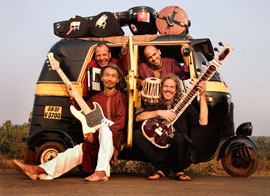 South Asia related culture in
Scandinavia
South Asia related culture in
Scandinavia
• Prem Joshua & Band performs in Stockholm
Prem Joshua & Band, one of the the best selling world music bands of India, traveling all over the world for years, performs in Stockholm on Saturday 1 May 2010, 19.00. The band leader Prem Joshua both sings and plays
Sitar, Bamboo Flutes, Soprano Sax, and Dilruba. The other members are Chintan Relenberg on
Loops, Keyboards, Darbouka, Tabla, Vocals; Raul Sengupta on
Tabla, Percussion, and Vocals; and Satgyan Fukuda on
Bass, Percussion, and Vocals. The Stockholm concert will be held at Nybrokajen 11. More information.
See the poster for the concert.
• More information about South Asia related culture
in Sweden and Scandinavia
See SASNET’s page, http://www.sasnet.lu.se/culture.html
New and updated items on SASNET web site
• Swedish departments where research on
South Asia is going on:
Constantly added to the list of research environments at Swedish
universities, presented by SASNET. The full list now includes 270 departments,
with detailed descriptions of the South Asia related research and education
taking place! Go to http://www.sasnet.lu.se/environment.html
• Useful travelling information
Look at http://www.sasnet.lu.se/travelling.html.
Updated travel advises from the The British Foreign & Commonwealth
Office about safety aspects on travelling to the countries of
South Asia.
Best regards,
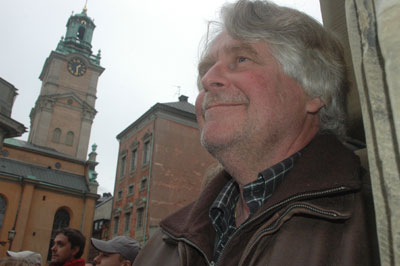 Lars
Eklund
Lars
Eklund
deputy director/webmaster
SASNET/Swedish South Asian Studies Network
SASNET is a national network for research, education, and information about South Asia based at Lund University. Its aim is to promote a dynamic networking process in which Swedish researchers co-operate with researchers in South Asia and globally.
The SASNET network is open to all the sciences. Priority is given to interdisciplinary cooperation across faculties, and more particularly to institutions in the Nordic countries and South Asia. SASNET believes that South Asian studies will be most fruitfully pursued as a cooperative endeavour between researchers in different institutions who have a solid base in their mother disciplines.
The network is financed by Lund
University.
Postal address: SASNET – Swedish South Asian Studies Network,
Scheelevägen 15 D, SE-223 70 Lund, Sweden
Visiting address: Ideon Research Park, House Alpha 1 (first floor,
room no. 2040), in the premises of the Centre for East and South
East Asian Studies at Lund University (ACE).
Phone: + 46 46 222 73 40
Fax: + 46 46 222 30 41
E-mail: sasnet@sasnet.lu.se
Web site:
http://www.sasnet.lu.se
SASNET - Swedish South Asian Studies Network/Lund
University
Address: Scheelevägen 15 D, SE-223 70 Lund, Sweden
Phone: +46 46 222 73 40
Webmaster: Lars Eklund
Last updated
2010-10-25